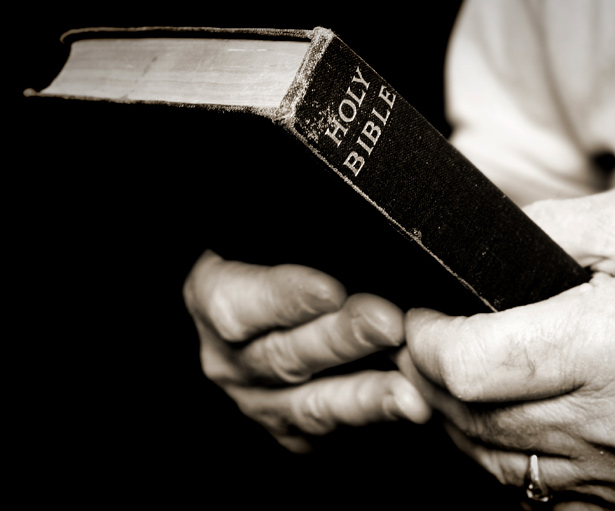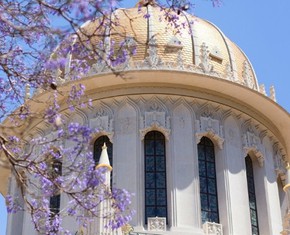The views expressed in our content reflect individual perspectives and do not represent the authoritative views of the Baha'i Faith.
For Baha’is, there is no greater joy than sharing the message of Baha’u’llah.
When I tell people about the Baha’i teachings, I usually hear positive, interested and excited responses. However, the response I sometimes receive when sharing this beautiful, hopeful message with the more zealous followers of Jesus can sometimes fall into one of three potential categories:
- “You are going to hell;”
- The person recites the verse from John 14:6 “Jesus saith unto him, I am the way, the truth, and the life: no man cometh unto the Father, but by me.” or,
- I’m simply warned to “beware of false prophets.”
 I can completely understand why steadfast and faithful believers in Jesus might respond in this manner to the message of Baha’u’llah when they first hear it–but perhaps the old adage “history repeats itself” rings true here. In the present day, it seems as if we’ve traveled back to the days of Jesus. The only difference? Jesus has a new name.
I can completely understand why steadfast and faithful believers in Jesus might respond in this manner to the message of Baha’u’llah when they first hear it–but perhaps the old adage “history repeats itself” rings true here. In the present day, it seems as if we’ve traveled back to the days of Jesus. The only difference? Jesus has a new name.
In the days of Jesus the Jews awaited the Messiah, and believed his return would happen under the conditions foretold in the Torah. Today, Christians expect Jesus’ return, too–but only under certain conditions. The Baha’i teachings say this about Christ’s time and the Jew’s expectation that he would “come from an unknown place:”
Steeped in the literal interpretation and imitating the beliefs of fathers and ancestors they failed to understand the fact that although the body of Jesus came from Nazareth, the reality of the Christ came from the unknown place of the divine Kingdom. They also said that the sceptre of His Holiness Christ would be of iron, that is to say he should wield a sword. When His Holiness Christ appeared, he did possess a sword but it was the sword of his tongue with which he separated the false from the true; but the Jews were blind to the spiritual significance and symbolism of the prophetic words. They also expected that the Messiah would sit upon the throne of David whereas His Holiness the Christ had neither throne nor semblance of sovereignty; nay, rather, he was a poor man, apparently abject and vanquished; therefore how could he be the veritable Christ? This was one of their most insistent objections based upon ancestral interpretation and teaching. In reality His Holiness Christ was glorified with an eternal sovereignty and everlasting dominion, spiritual and not temporal. His throne and kingdom were established in human hearts where he reigns with power and authority without end. Notwithstanding the fulfillment of all the prophetic signs in His Holiness, the Jews denied him and entered the period of their deprivation because of their allegiance to imitations and ancestral forms. – Abdu’l-Baha, Foundations of World Unity, p. 74.
Just as many people in his time reflexively considered Christ a false prophet and failed to investigate his teachings, today some think of Baha’u’llah as a false prophet and summarily deny the Baha’i Faith without any sincere investigation:
…during the days of Jesus Christ the Jews were expecting the appearance of the Messiah, praying and beseeching God day and night that the Promised One might appear. Why did they reject Him when He did appear? They denied Him absolutely, refused to believe in Him. There was no abuse and persecution which they did not heap upon Him. They reviled Him with curses, placed a crown of thorns upon His head, led Him through the streets in scorn and derision and finally crucified Him. Why did they do this? Because they did not investigate the truth or reality of Christ and were not able to recognize Him as the Messiah of God. – Abdu’l-Baha, The Promulgation of Universal Peace, p. 62.
The early adherents of both religions confronted the same kind of skepticism. Jesus’ followers faced persecution and in many cases, went to their deaths for their beliefs. Similarly, thousands upon thousands of souls died during the early history of the Baha’i Faith, just for believing in Baha’u’llah’s message. For hundreds of years after Christ, his believers were persecuted and scoffed at. The same is true a little more than a hundred and fifty years after Baha’u’llah declared his mission—even though the Baha’i Faith has now spread to every corner of the Earth.
You May Also Like
Comments

















One approach is to encourage them to read the very passages they cite. Such as, "No man cometh unto the Father", which is Baha'u'llah, for Christ is the Son of God. And again, the warning of false prophets says ...that many, not one, shall come in Christ's name, like the many Christian leaders "in sheep's clothing", "and you will know them by their fruits." Baha'u'llah's fruits can be found in the history of His life, His kindness to a world that persecuted Him and yet still he spoke the Word of God for our benefit. And what of the fruits of the rich religious leaders?
Still at other times it might be advisable to take this passage to heart, "And should any one reject thy offer, turn thou away from him and put thy trust and confidence in the Lord, thy God, the Lord of all worlds." --Baha'u'llah
I have read that in the future, the Baha'i Sabbath will be Friday, but that's way down the line somewhere, a decision to be made in the very distant future by the Baha'i Universal House of Justice as to when that will begin. In the Baha'i calendar, other than occasional, very specific holy days, every day of the week is the same as every other day.
Baha'is believe that our hearts should be so consecrated to the love of God and service to all the members of the human family that we essentially live in a state of prayer, our actions and thoughts essentially acts of worship. Or as close to it as humanly possible!